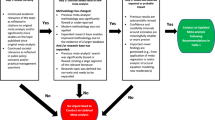Abstract
This article discusses the limitations of the orthodox economic theory of the firm as a nexus of contracts. Various experimental studies have shown that the aggregation of individuals in groups changes behaviour and preferences systematically. This perspective has been formalised by models of interdependent preferences. Based on a prominent approach of interdependent preferences, intention-based preferences, two types of labour contracts, incentive contracts and bonus contracts are analysed. Results are compared with the predictions of the orthodox economic theory.
Similar content being viewed by others
References
Bolton, G.E., and A. Ockenfels, ‘ERC: A Theory of Equity, Reciprocity, and Competition’, 90 American Economic Review (2000) pp. 166–193.
Cabral, L.M.B., ‘Stretching Firm and Brand Reputation’, 31 The Rand Journal of Economics (2000) pp 658–673.
Coase, R., ‘The Nature of the Firm’, 4 Economica (1937) pp. 386–405.
Demougin, D., C. Fluet and C. Helm, ‘Output and Wages with Inequality Averse Agents’, 39 Canadian Journal of Economics (2006) pp. 399–413.
Desiraju, R., and D. Sappington, ‘Equity and Adverse Selection’, 16 Journal of Economics and Management Strategy (2007) pp. 285–318.
Dufwenberg, M., and G. Kirchsteiger, ‘A Theory of Sequential Reciprocity’, 47 Games and Economic Behavior (2004) pp. 268–298.
Falk, A., and U. Fischbacher, ‘A Theory of Reciprocity’, 54 Games and Economic Behavior (2006) pp. 293–315.
Fehr, E., A. Klein and K. Schmidt, ‘Fairness and Contract Design’, 75 Econometrica (2007) pp. 121–154.
Fehr, E., and K. Schmidt, ‘A Theory of Fairness, Competition, and Cooperation’, 114 Quarterly Journal of Economics (1999) pp. 817–868.
Fehr, E., and K. Schmidt, ‘The Economics of Fairness, Reciprocity and Altruism — Experimental Evidence and New Theories’, in S.-C. Kolm and J.M. Ythier, eds., Handbook of the Economics of Giving, Altruism and Reciprocity, Volume 1 (Amsterdam, Elsevier 2006) pp. 615–692.
Grossman, S., and O. Hart, ‘The Costs and Benefits of Ownership: A Theory of Vertical and Lateral Integration’, 94 Journal of Political Economy (1986) pp. 691–719.
Güth, W., R. Schmittberger and B. Schwarze, ‘An Experimental Analysis of Ultimatum Bargaining’, 3 Journal of Economic Behavior and Organization (1982) pp. 367–388.
Hart, O., ‘Incomplete Contracts and the Theory of the Firm’, 4 Journal of Law, Economics, and Organization (1988) pp. 119–139.
Hart, O., and J. Moore, ‘Property Rights and the Nature of the Firm’, 98 The Journal of Political Economy (1990) pp. 1119–1158.
Holmstrom, B., ‘Moral Hazard in Teams’, 13 The Bell Journal of Economics (1982) pp. 324–340.
Isaac, R., K. McCue and C. Plott, ‘Public Good Provision in an Experimental Environment’, 26 Journal of Public Economics (1985) pp. 51–74. Jensen, M.C., and W.H. Meckling, ‘Theory of the Firm: Managerial Behavior, Agency Costs and Ownership Structure’, 3 Journal of Financial Economics (1976) pp. 305–360.
Kagel, J.H., and A.E. Roth, eds., The Handbook of Experimental Economics (Princeton, N.J., Princeton University Press 1995).
Rabin, M., ‘Incorporating Fairness into Game Theory and Economics’, 83 American Economic Review (1993) pp. 1281–1302.
von Siemens, F., Fairness, Adverse Selection, and Employment Contracts, Working Paper 2005-14 (München, Ludwig Maximilians University 2005).
Sobel, J., ‘Interdependent Preferences and Reciprocity’, 43 Journal of Economic Literature (2005) pp. 392–436.
Tadelis, S., ‘What’s in a Name? Reputation As a Tradeable Asset’, 89 American Economic Review (1999) pp. 548–563.
Zwick, R., and X.-P. Chen, ‘What Price Fairness? A Bargaining Study’, 45 Management Science (1999) pp. 804–823.
Author information
Authors and Affiliations
Corresponding author
Additional information
I gratefully acknowledge the helpful advice of C. Engel, M. Hellwig and C.C. von Weizsäcker.
Rights and permissions
About this article
Cite this article
Nicklisch, A. The (De)composition of Firms: Interdependent Preferences of Corporate Actors. Eur Bus Org Law Rev 10, 291–305 (2009). https://doi.org/10.1017/S1566752909002912
Published:
Issue Date:
DOI: https://doi.org/10.1017/S1566752909002912




